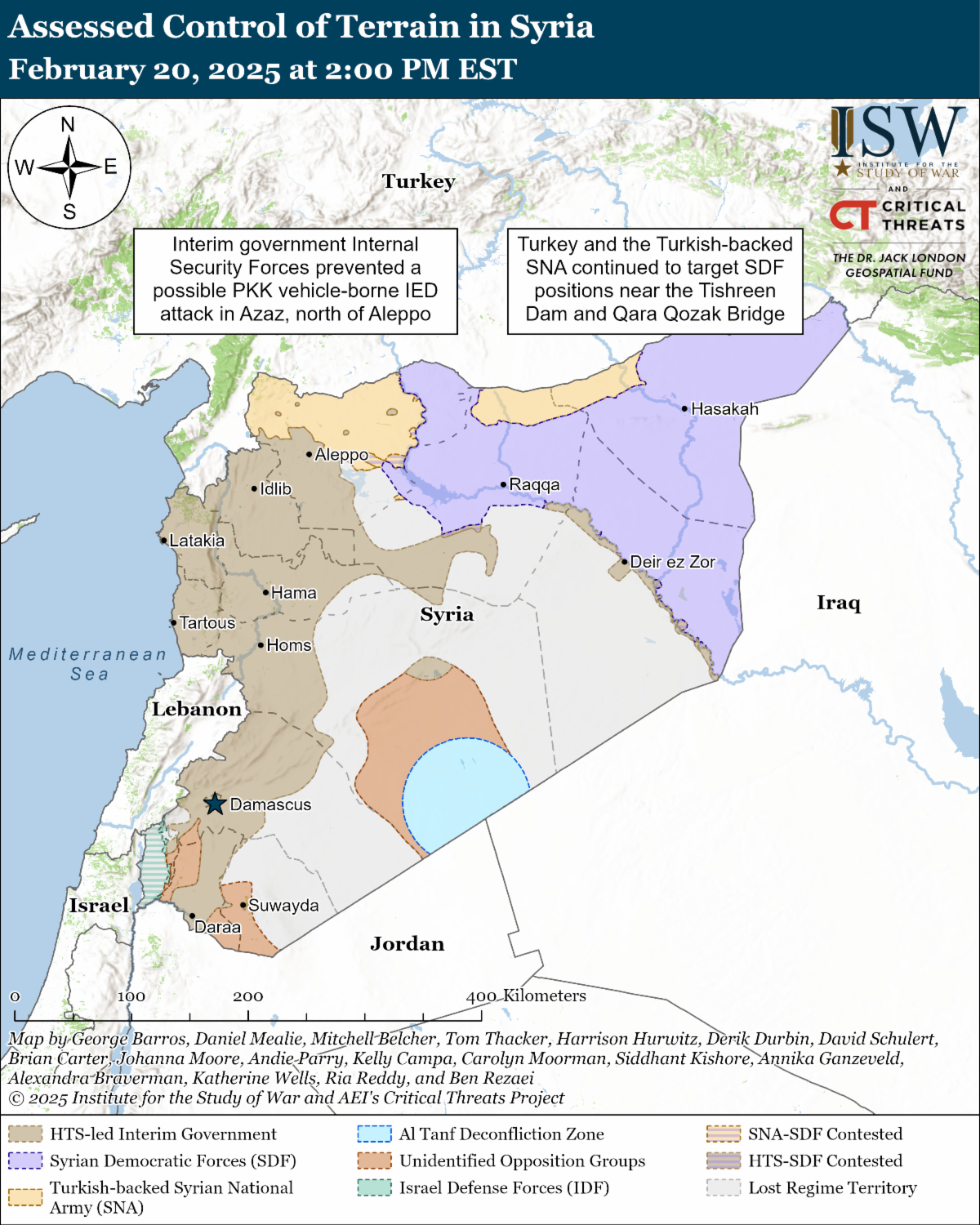Senior Islamic Revolutionary Guards Corps (IRGC) commanders have resurfaced threats to conduct a direct attack on Israel, likely to try to shape Israeli decision making and deter a potential Israeli strike on Iran. Several senior IRGC commanders, including IRGC Commander Major General Hossein Salami, IRGC Deputy Commander Brigadier General Ali Fadavi, and IRGC Aerospace Force Commander Brigadier General Amir Ali Hajji Zadeh, have warned in recent days that Iran will conduct a third “True Promise” attack against Israel. Iran named its previous two direct attacks on Israel in April and October 2024 “True Promise I” and “True Promise II,” respectively. Iranian military officials initially threatened to conduct a third direct attack on Israel after the IDF conducted strikes in Iran in late October 2024. These threats gradually subsided in the weeks following the IDF strikes, however. IRGC commanders have likely resurfaced these threats in recent days to try to deter an Israeli attack on Iran and to reassure the Iranian population that the IRGC would respond to any Israeli attack on Iranian territory.
Hajji Zadeh highlighted Iran’s vulnerability to an external attack in an interview on February 18. Hajji Zadeh stated that Iran’s “anti-ballistic [missile] defense” systems suffered damage during “recent incidents.” Hajji Zadeh was likely referring to the S-300 air defense systems that the IDF struck in October 2024. The October 2024 IDF strikes rendered Iran's S-300 air defense systems inoperable, likely by destroying the radars that the systems rely on. Hajji Zadeh added that Supreme Leader Ali Khamenei’s “first follow-up" during meetings with Hajji Zadeh, Salami, and Armed Forces General Staff Chief Major General Mohammad Bagheri is about the issue of “anti-ballistic [missile] defense” systems. Khamenei’s prioritization of this issue highlights his concern about a potential external attack on Iran. Hajji Zadeh claimed that Iran will install “anti-ballistic [missile] defense systems” in Tehran and other major Iranian cities in the next Persian calendar year, which begins in late March 2025.
Key Takeaways:
- Iranian Rhetoric: Senior Islamic Revolutionary Guards Corps (IRGC) commanders have resurfaced threats to conduct a direct attack on Israel, likely to try to shape Israeli decision making and deter a potential Israeli strike on Iran. Hajji Zadeh also highlighted Iran’s vulnerability to an external attack in an interview on February 18. Hajji Zadeh stated that Iran’s “anti-ballistic [missile] defense” systems suffered damage during “recent incidents.”
- Syrian Constitution: The composition of the Raqqa and Hasakah dialogue sessions was likely influenced by the fact that it took place in Damascus and that the HTS-affiliated Preparatory Committee refused to invite the SDF. The Kurdish National Council (KNC), criticized the decision to hold the dialogue sessions outside areas controlled by the SDF and the composition of the session participants. This is notable given the KNC’s long-standing opposition to the SDF.
- Kurdistan Workers’ Party (PKK) in Syria: Interim government Internal Security Forces seized a possible PKK vehicle-borne improvised explosive device (VBIED) in Azaz, northwestern Aleppo Province, on February 20. It is highly unlikely that SDF commander Mazloum Abdi has command and control over PKK elements operating in Azaz and other areas behind the frontline. Abdi has denied that the SDF is involved in the recent attacks and has significant incentives to avoid undermining ongoing negotiations with the Damascus government.
- Iraqi Elections: Key Iraqi political parties, including the main Iranian-backed Iraqi Shia political parties, are attempting to solidify their control of the Iraqi state by amending the Iraqi electoral law ahead of the October 2025 parliamentary elections.
- Iraqi Politics: Some Iraqi Shia politicians and notable Shia religious figures are concerned that Sadr’s potential non-involvement in the upcoming elections could destabilize Iraq. Shia Coordination Framework members may seek to include Sadr in the upcoming elections to head off the risk of protests while simultaneously changing the electoral law to disadvantage Sadr and other small parties. This move would protect Iraq’s stability by avoiding protests while also ensuring that elements of the Shia Coordination Framework could control the government.
| 




 [ISW] 이란 업데이트, 2025년 2월 21일
[ISW] 이란 업데이트, 2025년 2월 21일
 [ISW] 이란 업데이트, 2025년 2월 7일
[ISW] 이란 업데이트, 2025년 2월 7일